#césar charlone
Explore tagged Tumblr posts
Text

Sugar
Season 1, “Farewell”
Director: Fernando Meirelles
DoP: César Charlone
#Sugar#Farewell#Season Finale#Sugar S01E08#Season 1#Fernando Meirelles#César Charlone#Colin Farrell#John Sugar#Donald Joh#Sam Catlin#Mark Protosevich#Apple TV+#Protokino#Kinberg Genre#Chapel Place Productions#Apple Studios#TV Moments#TV Series#TV Show#television#TV#TV Frames#cinematography#May 17#2024
22 notes
·
View notes
Photo

City of God (Fernando Meirelles and Kátia Lund, 2002)
Cast: Alexandre Rodrigues, Leandro Firmino, Phellipe Haagensen, Douglas Silva, Jonathan Haagensen, Matheus Nachtergaele. Screenplay: Bráulio Mantovani, based on a novel by Paulo Lins. Cinematography: César Charlone. Production design: Tulé Peak. Film editing: Daniel Rezende. Music: Ed Côrtes, Antonio Pinto.
City of God is an exceptionally involving docudrama that employs non-professional actors to stunning effect. The only experienced professional in the cast was Matheus Nachtergaele, who plays the drug dealer known as "Carrot." The rest were mostly recruited from the streets and slums of Rio de Janeiro, and put through several months of training, largely under the supervision of Kátia Lund, who also worked with the cast during filming and is billed as "co-director." Lund had become familiar with Rio's slum-dwellers through her work on music videos and documentary films. The shape of the film, including its flashback structure and use of quick cutting and hand-held camera, is largely that of Fernando Meirelles, whose later work includes coverage of the opening ceremony of the 2016 Olympics in Rio. And that reliance on flashy camerawork and narrative tricks is, I think, the greatest flaw of City of God. It detracts from some of our involvement in the lives of its characters, turning away from documentary-like reality into sheer "movie-making." Nevertheless, the film successfully immerses us in the violent lives of the people of the favelas. It was a significant critical and even commercial hit, earning four Oscar nominations, a rare feat for a foreign-language film, although it wasn't submitted by Brazil for the foreign-language Oscar. Instead it was nominated for best director, best adapted screenplay, cinematography, and film editing. Some controversy arose when only Meirelles was cited in the directing nomination, but the Academy has strict eligibility rules, and Lund's credit of "co-director" was judged to be a disqualifier. Given my reservations about Meirelles's use of the camera, I think maybe Lund deserved the nomination more than he did.
4 notes
·
View notes
Text
Korbin Massie
City of God
World Cinema
Analytical Review of City of God
City of God (2002), directed by Fernando Meirelles and Kátia Lund, dives deeply into themes of poverty, violence, and survival within Rio de Janeiro. Adapted from Paulo Lins's autobiographical novel, the film sheds light on the challenging and often harsh lives of different individuals caught in cycles of crime, economic problems, and social neglect. Although centered on gang rivalries and drug wars, *City of God* goes beyond typical crime drama, critiquing systematic inequality and showing how environments lacking structural support lead people down paths marked by violence, limited opportunity, and the pursuit of power.
One of City of God's standout elements is its nonlinear structure and layered perspective. The story is narrated by Rocket, a young photographer whose detached viewpoint offers insight into the issues of the city. His narration shows flashbacks and present-day events, offering a view into the characters’ pasts and showing how power dynamics change over time.
Rocket’s role as narrator adds a layer of complexity. Growing up in the city, he is both an insider to its struggles and an outsider in his desire to escape through photography. His detachment from the violence, both a way of coping and a product of his artistic aspirations, encourages viewers to assess the unfolding events. Unlike the gang members who seek control through violence, Rocket’s pursuit of a different life path shows a personal struggle for identity that extends beyond the city’s borders.
The film’s style is visually striking, creating an experience that feels both documentary-like and cinematically intense. César Charlone uses handheld shots, quick pans, and close-ups to capture the energy and unpredictability of life in the slums, aligning with the directors’ commitment to realism. The choice to cast non-professional actors, many from similar backgrounds, further enhances the story's authenticity, giving the characters a real, grounded feel instead of making them seem unauthentic.
The use of color and lighting is also significant. Gritty, sun-soaked visuals emphasize the intense heat and crowded nature of the slums, while faded, dusty hues evoke a sense of evil and hopelessness. Occasional bright colors fill certain scenes, highlighting the cultural vibrancy of the city despite its harsh conditions. This visual style isn’t just for aesthetic effect, it serves as a commentary on the comparison of beauty and brutality that defines life there.
The film’s themes revolve around survival, power, and the brutal cycle of violence that clings to its characters. The city functions as an isolated ecosystem where government and social services are nearly absent, leaving crime as a primary survival mechanism and power gained through violence. Characters like Lil Ze and Benny represent different approaches to navigating this environment. Lil Ze personifies an unchecked drive for dominance, enjoying the violence he brings upon others, whereas Benny, despite his gang affiliation, seeks peace and connection. Their contrasting paths show how responses to the same harsh conditions can lead to drastically different outcomes, though both are inevitably shaped by the city’s boundaries.
0 notes
Text
THE CITY of GOD (2002)

source: https://www.tumblr.com/haveyouseenthismovie-poll/741533480021803008?source=share
City of God (Portuguese: Cidade de Deus) is a 2002 Brazilian epic action crime film directed by Fernando Meirelles and Kátia Lund. Bráulio Mantovani’s script is adapted from the 1997 novel of the same name written by Paulo Lins, but the plot is also loosely based on real events. It depicts the growth of organized crime in the Cidade de Deus suburb of Rio de Janeiro, between the end of the 1960s and the beginning of the 1980s, with the film’s closure depicting the war between the drug dealer Li’l Zé and vigilante-turned-criminal Knockout Ned. The tagline is “If you run, the beast catches you; if you stay, the beast eats you.”
youtube
1049-1LINK https://youtu.be/ASPvpdaQpRQ
Most of the actors were residents of favelas such as Vidigal and the Cidade de Deus itself.

City Of God received widespread critical acclaim and garnered four nominations at the 76th Academy Awards; Best Cinematography (César Charlone), Best Director (Meirelles), Best Film Editing (Daniel Rezende), and Best Writing (Adapted Screenplay) (Mantovani). In 2003, it was Brazil’s entry for the Academy Award for Best Foreign Language Film, but it did not end up being nominated as one of the five finalists. It is frequently listed by many critics and audiences as one of the greatest films of the 21st century and one of the best films of all-time.
The following list are the films THE CITY OF GOD lost too.

Meirelles and Lund went on to create the City of Men TV series and its 2007 film adaptation, which share some of the actors (notably leads Silva and Darlan Cunha) and their setting with City of God.
City of God (2002 film) — Wikipedia IMdB 8'6
THE FILM
1049-2 LINK https://ok.ru/video/7841985071667
notes:
City of God (2002 film) — Wikipedia
76th Academy Awards — Wikipedia
0 notes
Text


CALIFICACIÓN PERSONAL: 8 / 10
Título Original: La uruguaya
Año: 2022
Duración: 78 min
País: Uruguay
Dirección: Ana Garcia Blaya
Guion: Sofía Badia, Alejo Barmasch, Christian Basilis, Juan Games, Marcos Krivocapich, Melania Stucchi. Novela: Pedro Mairal
Música: Mocchi
Fotografía: César Charlone, Soledad Rodríguez
Reparto: Sebastián Arzeno, Fiorella Bottaiolli, Jazmín Stuart, Gustavo Garzon, Josefina Gali, etc
Productora: Orsai Cine; 1961 Productores; Atlántico Content
Género: Drama
TRAILER:
youtube
0 notes
Text
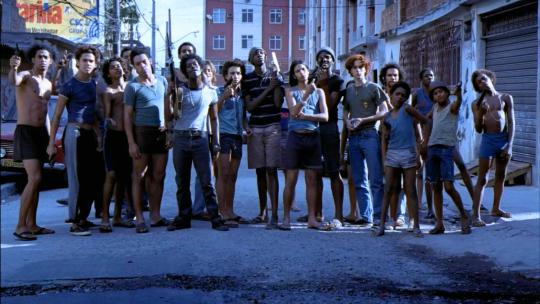

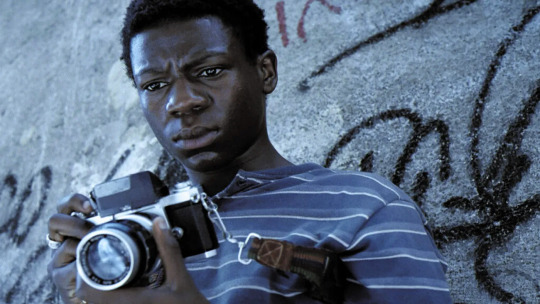
#ProyeccionDeVida
🎬 “CIUDAD DE DIOS” [Cidade de Deus]
🔎 Género: Drama / Pobreza / Basado en hechos reales / Crimen / Película de culto.
⌛️ Duración: 130 minutos
✍️ Guión: Braulio Mantovani
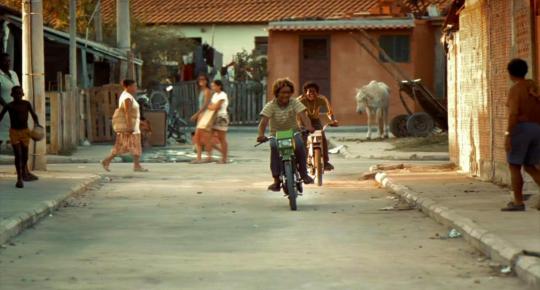
📕 Novela: Paulo Lins
🎼 Música: Antonio Pinto y Ed Cortes
📷 Fotografía: César Charlone
🗯 Argumento: Basada en hechos reales, describe el mundo del crimen organizado en Cidade de Deus, un suburbio de Río de Janeiro, desde finales de los sesenta hasta principios de los ochenta, época durante la cual el tráfico de drogas y la violencia impusieron su ley en las favelas. A finales de los sesenta, Buscapé, un niño de once años tímido y sensible, observa a los niños duros de su barrio, sus robos, sus peleas, sus enfrentamientos diarios con la policía. Pero él sabe muy bien lo que quiere ser si consigue sobrevivir: fotógrafo. Dadinho, un niño de su edad que se traslada al barrio, sueña con ser el criminal más peligroso de Río de Janeiro y empieza su aprendizaje haciendo recados para los delincuentes locales. Admira a Cabeleira y su pandilla, que se dedican a atracar los camiones del gas. Un día Cabeleira le da a Dadinho la oportunidad de cometer su primer asesinato.
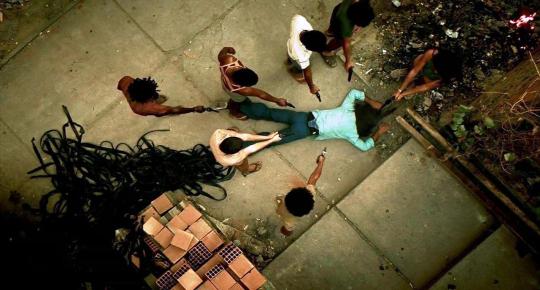
👥 Reparto: Alexandre Rodrigues, Leandro Firmino, Phellipe Haagensen, Douglas Silva, Seu Jorge, Jonathan Haagensen, Matheus Nachtergaele, Jefechander Suplino, Alice Braga, Emerson Gomes, Luis Otávio, Babu Santana y Gero Camilo.
📢 Dirección: Fernando Meirelles y Kátia Lund
© Productoras: O2 Filmes, VideoFilmes, Globo Filmes, Wild Bunch, Lumière, Studiocanal, Hank Levine Film & Lereby Produções.
🌎 País: Brasil
📅 Año: 2002
▶️ Video promocional: https://www.youtube.com/watch?v=JYKs35P2fZw
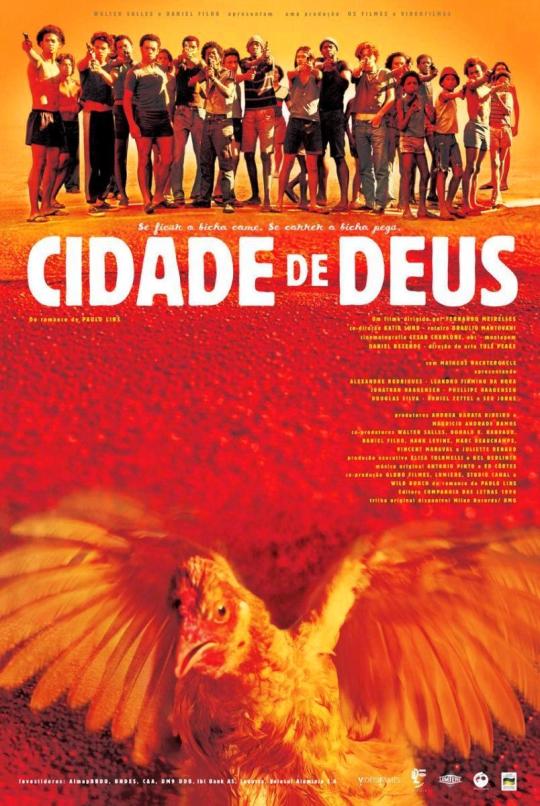
📽 Proyección:
📆 Jueves 23 de Mayo
🕗 8:00pm.
🏟️ Cine Caleta (calle Aurelio de Souza 225 - Barranco)
🚶♀️🚶♂️ Ingreso libre
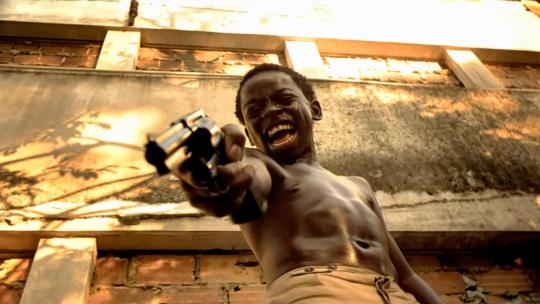
🙂 A tener en cuenta: Prohibido el ingreso de bebidas y comidas.
1 note
·
View note
Text
Documentário PARTIDO, protagonizado por Fernando Haddad, está na 47ª Mostra de São Paulo
Longa que acompanha o então candidato à presidência durante as eleições de 2018 será exibido nos dias 28 e 31 de outubro A O2 Play, distribuidora da O2 Filmes, anuncia que o documentário Partido, protagonizado por Fernando Haddad, terá duas exibições especiais na 47ª edição da Mostra Internacional de Cinema de São Paulo – nos dias 28 e 31 de outubro. Com direção de César Charlone, Sebastián…

View On WordPress
0 notes
Text
Cidade de Deus - Filmes sobre Fotografia

https://www.youtube.com/watch?v=fZJUKixyeXM "Cidade de Deus" é um filme brasileiro que retrata a vida em uma das favelas mais violentas do Rio de Janeiro. A palavra "fotografia" desempenha um papel essencial nessa obra-prima cinematográfica. A maneira como o filme foi fotografado e a estética visual criada pelo diretor de fotografia, César Charlone, desempenham um papel fundamental na narrativa e na experiência sensorial do espectador. A fotografia em "Cidade de Deus" é crua, intensa e realista. Charlone e o diretor do filme, Fernando Meirelles, optaram por uma abordagem visual que reflete a dura realidade das favelas, sem romantizar ou glamourizar a violência. A paleta de cores é muitas vezes sombria e desaturada, transmitindo uma sensação de opressão e desesperança que permeia a vida dos personagens. Ao mesmo tempo, os momentos de intensidade e violência são ressaltados com o uso de cores vivas e contrastantes, criando impacto visual e emocional. A escolha da câmera e das técnicas de filmagem também contribui para a experiência imersiva de "Cidade de Deus". A câmera é frequentemente colocada na perspectiva dos personagens, trazendo uma sensação de realismo e envolvimento. Os movimentos de câmera ágeis e frenéticos capturam a energia e a ação vertiginosa das cenas de tiroteio e perseguição, criando uma sensação de tensão e adrenalina. Por outro lado, momentos de contemplação e reflexão são capturados com planos mais estáticos e composições cuidadosamente enquadradas, revelando detalhes importantes da vida nas favelas. A fotografia também é usada como uma ferramenta narrativa em "Cidade de Deus". Através de enquadramentos e composições, o filme destaca as divisões sociais presentes na comunidade. O contraste entre as casas modestas e degradadas dos moradores da favela e os condomínios luxuosos do lado de fora é frequentemente explorado visualmente, reforçando a desigualdade social e econômica. Além disso, a câmera revela detalhes significativos dos cenários, como murais, grafites e elementos da cultura local, que ajudam a construir a atmosfera única da Cidade de Deus. A fotografia em "Cidade de Deus" desempenha um papel fundamental na narrativa e na experiência cinematográfica como um todo. Ela retrata a vida nas favelas com uma autenticidade impactante, capturando a realidade de uma comunidade marginalizada através de uma estética visual poderosa. A forma como o filme utiliza a fotografia como uma ferramenta narrativa ajuda a transmitir mensagens profundas sobre desigualdade social, violência e esperança em meio ao caos. Read the full article
0 notes
Photo










City of God (Fernando Meirelles & Kátia Lund, 2002).
#kátia lund#fernando meirelles#cidade de deus#city of god#césar charlone#daniel rezende#tulé peak#bia salgado#inês salgado#city of god (2002)#cidade de deus (2002)
151 notes
·
View notes
Photo

The only thing more terrifying than blindness is being the only one who can see.
Blindness, Fernando Meirelles (2008)
#Fernando Meirelles#Don McKellar#Julianne Moore#Mark Ruffalo#Alice Braga#Danny Glover#Gael García Bernal#Sandra Oh#Yûsuke Iseya#César Charlone#Marco Antônio Guimarães#Daniel Rezende#2008
17 notes
·
View notes
Photo

American Made (2017)
• Dirección: Doug Liman
• Guion: Gary Spinelli
• Fotografía: César Charlone
• Cast: Tom Cruise
#Película#Gif#Comedia de acción#Barry Seal: El traficante#Doug Liman#Gary Spinelli#César Charlone#Tom Cruise#Film#American Made#Action Comedy Movie#Barry Seal#2017#10s
2 notes
·
View notes
Text

Sugar
Season 1, “Go Home”
Director: Fernando Meirelles
DoP: César Charlone
#Sugar#Go Home#Sugar S01E06#Season 1#Fernando Meirelles#César Charlone#Colin Farrell#John Sugar#Donald Joh#Sam Catlin#Mark Protosevich#Apple TV+#Protokino#Kinberg Genre#Chapel Place Productions#Apple Studios#TV Moments#TV Series#TV Show#television#TV#TV Frames#cinematography#May 3#2024
15 notes
·
View notes
Text










The Two Popes (2019)
Director - Fernando Meirelles, Cinematography - César Charlone
"We have spent these last years disciplining anyone who disagrees with our line on divorce, on birth control, on being gay. While our planet was being destroyed, while inequality grew like a cancer. We worried whether it was alright to speak the Mass in Latin, whether girls should be allowed to be altar servers. We built walls around us, and all the time, all the time, the real danger was inside. Inside with us."
#scenesandscreens#the two popes#Josello Bella#Germán de Silva#federico torre#Achille Brugnini#Thomas D. Williams#Willie Jonah#Maria Ucedo#Lisandro Fiks#sidney cole#Luis Gnecco#anthony hopkins#jonathan pryce#fernando meirelles#César Charlone
200 notes
·
View notes
Photo





City of God (2002) Dirs. Fernando Meirelles and Kátia Lund, Cin. César Charlone
“The slum had been a purgatory- now it was hell.”
#city of god#cidade de deus#cinematography#seu jorge#Kátia lund#fernando meirelles#Alexandre Rodrigues#Leandro Firmino#Phellipe Haagensen#Douglas Silva#Jonathan Haagensen#Matheus Nachtergaele#Alice Braga#César Charlone#brazil#brazilian cinema#movies#movie frames#film still#rio de janeiro#four frames at a time#2000s#2000s movies#movies i watched in 2017
109 notes
·
View notes
Photo

Rio, Eu te Amo
2014
Vicente Amorim Guillermo Arriaga Stephan Elliott Sang-soo Im Nadine Labaki Fernando Meirelles José Padilha Carlos Saldanha Paolo Sorrentino John Turturro Andrucha Waddington César Charlone
#Rio Eu te Amo#2014#Vicente Amorim#Guillermo Arriaga#Stephan Elliott#Sang-soo Im#Nadine Labaki#Fernando Meirelles#José Padilha#Carlos Saldanha#Paolo Sorrentino#John Turturro#Andrucha Waddington#César Charlone
0 notes
Photo
Fantastic film by Brazilian director Fernando Meirelles (Cidade de Deus, The Constant Gardener, Blindness).



So I actually liked The Two Popes more than I expected to.
#The Two Popes#Fernando Meirelles#Anthony Hopkins#Jonathan Pryce#Juan Minujín#César Charlone#Anthony McCarten#Netflix
169 notes
·
View notes